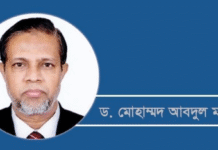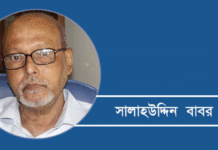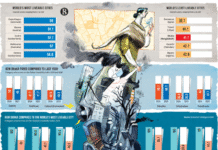
The passing of Anisuzzaman has taken from our midst one more close friend and comrade from the generation which participated in the struggle for national liberation and held steadfast to its values.
I can think of few people who embraced and embodied the four foundational pillars of our constitution—democracy, nationalism, secularism, and socialism—with Anis’s tenacity.
Anis and I had been friends and colleagues for 63 years, ever since we first joined Dhaka University as young teachers in 1957.
I remember him from those early encounters in the Teachers’ Common Room of the Old Arts Building of Dhaka University as a rather shy, soft-spoken young man who concealed his exceptional intelligence and erudition behind an exterior of great modesty and gentleness.
Prof Abdur Razzaq—”Sir,” to all who knew him—was my point of contact with Anis, and was to be our “guru” for the remainder of his life. Sir had the unique capacity of bringing together people from a variety of disciplinary backgrounds and walks of life whom he presumed shared his liberal enlightenment values.
A measure of his scholastic achievements is provided by the prestige he commanded in the academic community outside Bangladesh and particularly in India, where his work was widely recognised through prestigious awards, including the presentation of the Padma Bhusan by the president of India.
Anis was much more than a distinguished scholar. He was a born teacher and remained so throughout his life where he inspired generations of students at the universities of Chittagong and Dhaka, who remain in his thrall as their mentor, guide, philosopher, and friend.
It was appropriate that at the end of his life, his work should be recognised through his appointment as national professor, to go with his awards of the Ekushey Padak and the Swadhinata Puraskar.
Anisuzzaman’s contribution to our society extended well beyond his academic domain. His path-breaking scholarship provided the intellectual foundations for constructing and understanding our national identity.
His engagement with the issue of national identity inevitably drew him into the defining political struggles of our generation, from the Language Movement of 1952 to the struggles to project our cultural identity and the asserting of secular values in the 1960s.
His views and political involvements eventually drew him into embracing democratic struggle for self-rule for the Bangalis under the leadership of Bangabandhu.
In the final phase of our struggle for national liberation, Anisuzzaman remained an active participant. In 1971, he actively associated himself with the government in exile which directed the Liberation War.
Its prime minister, Tajuddin Ahmed, recognising the precision of his mind and the expressiveness of his pen, drew upon him for the preparation of his public presentations.
When I involved myself in the move to establish a planning board to advise the Mujibnagar government, we immediately sought out Anisuzzaman, along with Prof Musharraf Hossain and Prof Sarwar Murshid, among others, to play an active role in planning policy agendas for an independent Bangladesh. In this capacity, he also travelled across India to educate the Indian academic community about the emergence of Bangladesh.
In the immediate aftermath of liberation, when Bangabandhu entrusted Kamal Hossain, as law minister, with convening the drafting of the constitution for an independent Bangladesh, Kamal immediately reached out to Anis, who had returned to Chittagong University, to play the lead role in preparing the Bangla draft of the constitution.
Anis not only played a critical role in the translation process, but sat in on deliberations of the drafting committee where he could give expression to his own deeply held values.
Bangabandhu eventually invited Anis to join his administration as the secretary of the Ministry of Education, but Anis persuaded Bangabandhu that he could best serve him by remaining a university teacher at a time when the universities of an independent Bangladesh badly needed the services of such academic scholars.
For the remainder of his days, at Chittagong University and then Dhaka University, Anis remained fully committed to teaching and scholarship.
In this time, particularly through the dark days of cantonment rule, Anis remained committed to protecting and perpetuating the values which he had helped inscribe in our constitution.
This engaged him in struggles to challenge departures from the national commitment to democracy, social justice, and secularism, which were so inherent to the spirit of the Liberation War. He accordingly played a vanguard role with Jahanara Imam in the movement to bring collaborators in the genocide of 1971 to justice.
In the early years of the life of the Centre for Policy Dialogue (CPD), around the mid-1990s, I persuaded Anis to become a member of our board of trustees. Over the last 25 years of his life, Anis remained an active and treasured colleague in CPD’s programmes which were calculated to perpetuate the principles underlying our constitution.
In our endeavours, Anis remained an invaluable inspiration whose very presence in our midst ensured we did not distance ourselves from our foundational values.
Not all great scholars or public figures are also great human beings, free of conceit and notions of self-importance. But Anis was always available to all who sought his time and assistance. His generosity of spirit kept him involved, even in the final years of his life when his health had deteriorated, in attending public programmes when he could.
The departure of this great scholar, true patriot, and exceptional human being has left the nation impoverished. We will not see the likes of him again. I do not command adequate words to bid him farewell, so let me borrow from Horatio’s valediction in Shakespeare’s Hamlet:
Good night, Sweet Prince
And flights of angels sing thee to thy rest.
Professor Rehman Sobhan is Chairman, Centre for Policy Dialogue (CPD). The article was first published in Dhaka Tribune on May 19, 2020, and is being reprinted with the author’s permission.









